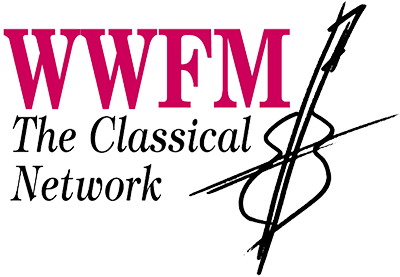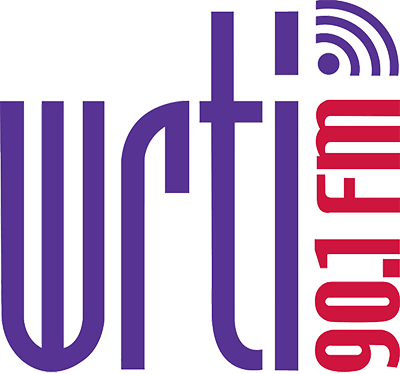
As the product of a somewhat devout Roman Catholic upbringing, the notion of Marian spirituality has always been a part of my religious wheelhouse. Beginning in grade school, I became acquainted with the text of the Magnificat, which was recited daily in a devotional society to which I belonged. I know that the lens of Mary’s perspective is something that also speaks quite profoundly to our conductor, Greg Funfgeld, and he has, in the past few years, fashioned the Friday programs at the Bach Festival from Mary’s vantage in 2010, and, now, with our 2014 Christmas Concerts, continues to explore the extent to which Mary’s faithfulness inspired composers of several generations.
We begin the program with Bach’s Cantata BWV 147, which was begun in Wiemar as an Advent piece, but was later reworked to be appropriate for the feast of the Visitation of the Blessed Virgin Mary (in Leipzig, Advent was a penitential season, during which there was no concerted music). Most listeners will surely be familiar with the chorale setting that appears twice in the cantata, “Jesu, Joy of Man’s Desiring,” but that popular movement is only one gem in the treasure chest this cantata represents. The opening chorus is full of ebullience and joy with melismatic passages representing an overflowing of witness to the sovereignty of Christ: “Heart and mouth and mind and life must give testimony of Christ…” The first recitative uses Mary as an example of faithfulness and belief, and the librettist, Bach’s colleague Salomo Franck, uses those virtues, found in Mary, as an exegetical point of departure. The cantata offers several perspectives on Christian witness, with Mary as an exemplar of obedience and faithfulness. Lutherans of Bach’s time, and, indeed, Luther himself, were concerned about the perceived “idolatry” of Roman Catholic Mariology, but Luther himself also held her in great regard. In his commentary on the Magnificat, Luther said, “The tender Mother of Christ… teaches us, with her words, and by the example of her experience, how to know, love and praise God.” Bach and Franck seem to derive great inspiration from Mary’s faithfulness, and this cantata abounds with calls to witness and obedience, and brims over with ecstatic praise.
Following BWV 147, The Choir will surround the audience on two sides to perform three shorter Marian pieces. The first is a setting of the Ave Maria text. Recall that the Angel Gabriel appeared to Mary with the greeting, “Hail Mary, full of grace, the Lord is with you!” Most of us are familiar with settings of this text by Schubert, or perhaps Charles Gounod’s adaptation of Bach’s first prelude from The Well-Tempered Clavier into a vocal piece with the same text. More niche-y is Bruckner’s rhapsodic setting, and, finally, some lucky souls might be familiar with Robert Parson’s masterpiece of Tudor Polyphony, his reverent and jaw-droppingly beautiful setting. Composed for five-part chorus, unaccompanied, this masterwork is, itself, a vast cathedral of sound, at once sweeping and arch, but also incredibly crafted and intimate. I have to confess to a little bit of initial skepticism about a choir as large as ours taking this piece on – to my ear, it is more ideally performed by maybe five or ten singers. This skepticism has given way – our recent rehearsals of this piece, in situ, at the First Presbyterian Church of Bethlehem, have been deeply gratifying, and I can’t wait for our audience to experience the waves of exquisite polyphony surrounding and washing over them.
Next, we will sing Sir Charles Villiers Stanford’s lovely setting of the Magnificat in G, for soprano soloist (in our case, the ascendant Ellen McAteer, whose singing of Eve in last spring’s Haydn Creation left us desperately wanting to hear more), choir, and organ. Fans of the office of evensong will love this succinct and lovely setting of Mary’s rhapsodic song of praise found in Luke 1:46-55. Stanford’s church music bridges a late romantic style with the very early 20th century, and this selection definitely tends toward the former. Ellen will soar, The Choir will support gently.
Finally, in this set, the women of The Choir will conclude with a more recent composition, Daniel Gawthrop’s moving Mary Speaks, for four-part women’s chorus, unaccompanied, with a text by the late, great Madeline L’Engle. Her poem connects Mary’s motherhood in a beautifully intimate way to the suffering of her son on the cross. Gawthrop responds to the intimacy of this poem with music of tremendous depth and color. It’s swiftly become a favorite of The Choir, and, I suspect, will become an audience favorite, as well.
After an interval, we’ll begin the second half of the concert with a performance of Carl Philipp Emanuel Bach’s setting of the Magnificat. CPE was an excellent composer in his own right, and our performance commemorates the 300th anniversary of his birth. CPE is also known for bridging his father’s Baroque style with the sounds and manners of the early Classical period. Indeed, as diverse a collection of composers as Haydn, Mozart, Beethoven, and Mendelssohn all held him in high regard and cited their study of his music as influential in their training.
I’m fond of his Magnificat – it strikes me as a cheerful and ruddy-cheeked effort, full of charm and beauty. One is cognizant, however, of the large shadow that looms over the work, and, indeed, his life as a composer – that of both his father’s setting of the Magnificat, as well as the old man’s accomplishments as a composer, in general. Musically literate psychologists would have a field day with this work, both to see where CPE chose to operate in the strictures of his father’s style, and where he set out to chart a new course. The moments of homage are just as touching as his moments of innovation, though, on the whole, there is an ever-so-slight sense of the young man seeking to prove something in this composition. Indeed, it’s thought that JS Bach arranged a performance of the piece in Leipzig as a sort of suggestion of succession at the Thomaskirche. Devoted Bach fans will likely sense some of the tensions in the piece. Everyone, however, will be assured a thrilling performance of this challenging and joyful music. After CPE’s Mag, we’ll conclude the program with the audience joining The Choir in the singing of Christmas Carols.
Greg’s arranged an excellent quartet of soloists for the concerts: the aforementioned Ellen McAteer, soprano, Bethlehem favorite (well, favorite in early music circles around the world), Daniel Taylor countertenor, Isaiah Bell (who is new to Bethlehem, but who had his Mostly Mozart debut this summer), tenor, and Joshua Copeland (he of the burnished tone and impeccable artistry), bass. We’re in for a real treat this weekend – if you’ve not ordered tickets, they are (at the time of my posting this) still available in both locations, though the Bethlehem concert will probably sell out soon. I’ll continue to post about the concerts as we rehearse and perform – check back here often!










































